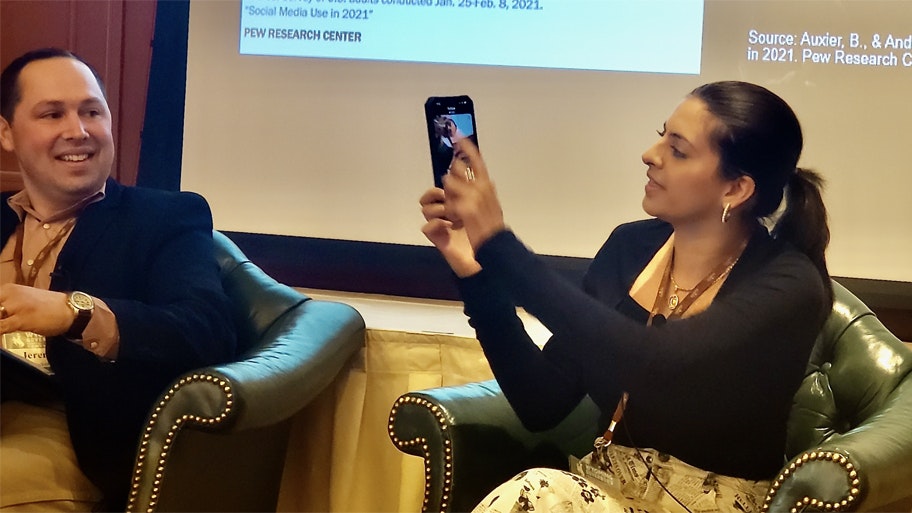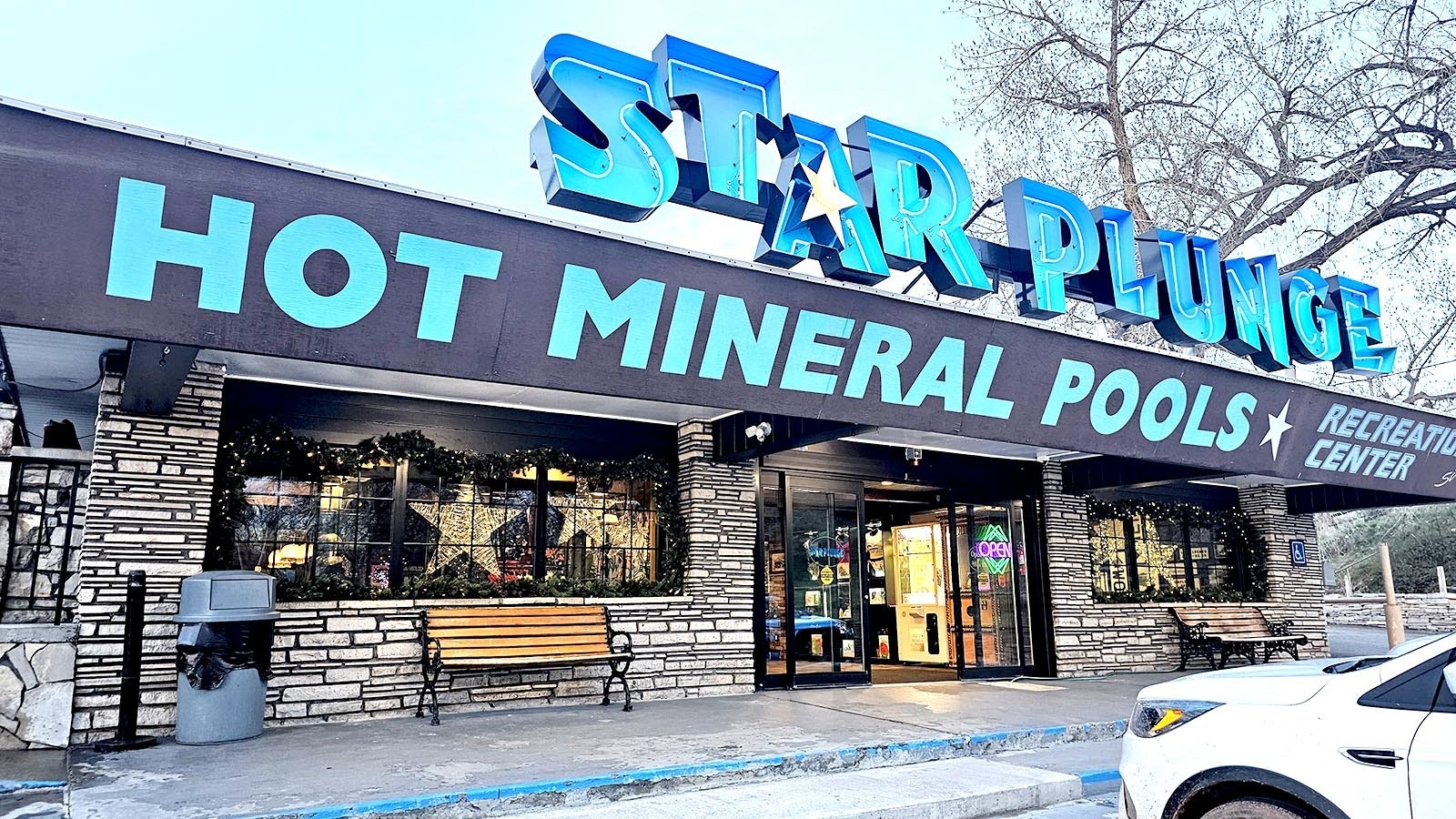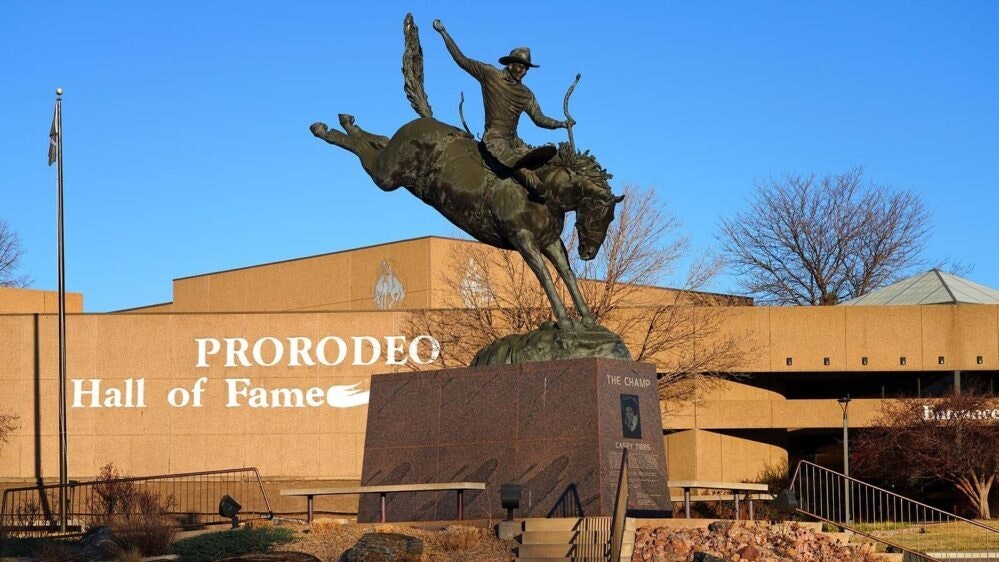Like it or not, Millennials and Generation Z are the future across a broad cross-section of business sectors that includes tourism.
In fact, marketing to Gen Z (people born between 1997 and 2012) is becoming more important. By 2026, they’ll make up the largest share of the U.S. consumer population at an estimated 82 million people — 2 million more than Millennials (born between 1981 and 1996).
Gen Z are already 32% of the world’s population, wielding $143 billion in spending power.
Understanding how to tap into that power is part of what Juv Consulting is all about. And cofounder Shaina Zafar, as a member of Generation Z herself, was front and center at a panel on the topic of generational marketing at the Wyoming Governor’s Hospitality and Tourism Conference on Monday.
The Receipt
Juv Consulting has assembled a network of more than 8,000 young people from all 50 states, which it refers to as “The Receipt.”
Polls can be passed by The Receipt generating hundreds of responses in a week or two. On a quarterly basis, Juv also issues what are called “yellow papers,” wordplay off of white papers and a nod to the generation’s signature color, about Gen Z marketing trends.
It’s a network that Zafar defines as more what not to do than what to do.
“The people on our network are the ones that will cancel you,” she said.
Cancel culture is something that really came about because of the internet, Zafar said.
“Often times, brands might be posting things on social media or enacting behaviors that Gen Z will deem to be cancelable, meaning that you’ll see (them) go on Twitter and call your brand out,” she explained.
If a large enough cohort sees the behavior as detrimental, that can lead to a widespread boycott of a brand, with whole groups of Gen Z’ers refusing to engage with or purchase the brand.
“So cancel culture just points out that behavior of calling out a brand, and then maybe even boycotting or not engaging with it at all,” Zafar said.
Who is Gen Z?
Understanding Generation Z means understanding where they’ve come from, the forces that have shaped them.
They have lived through Sept. 11, and they were witness to how the 2008 financial crisis pinched the budget for their parents, Zafar said. They’re also shaped by the $1.3 trillion student debt crisis and COVID-19.
Until now, they’ve been very willing to spend more money on products seen as good for the environment or more sustainable.
Zafar freely admits part of the reason for that is that it wasn’t necessarily their own money being spent at the time.
“When we start making our own money, I actually imagine that trend is going to decrease, right?” she said.
But she added that Gen Z also prides itself on being innovative. Companies ignore this generation’s desire to buy affordably priced products that are good for the environment at their own peril.
“I think Gen Z is really pulling out and pushing brands to think about that differently,” she said. “Because if we don’t see legacy brands or conglomerates changing that, we’re just going to try and create our own solution to that.”
Gen Z’ers now also are reckoning with what the price point should be for the quality of life they want and seeking salaries that are in line with that.
“Gen Z’ers are really reckoning with that in a time of eco anxiety and a time of recession and at a time of economic turbulence that we’ve never really had to witness before for our generation in terms of, you know, our proximity to it,” she said.
Why They Love Pop-Ups
Gen Z’ers like to travel in packs, Zafar said, and they love a good deal. They’re also yearning for affordable luxuries, which helps explain the overwhelming popularity of pop-up markets.
“It used to be audience first, and then it went digital first,” she said. “And now I think the new wave of that is community first. Meaning that you’re creating brands and products that are centered around people who have shared common values or interests or are a fan of the same thing.”
This group also is really conscious of the return on investment for their tourism choices.
“What’s the ROI of me staying here, besides maybe having like a cute Instagram post?” she said.
But it’s a mistake to view their behavior as naïveté.
“We’re really savvy about figuring out what deals we want to buy,” she said. “Whether it’s during Travel Tuesday that happens right after the Thanksgiving season or booking things in advance using our credit card points.”
She recalls, as an example, an article about how Gen Z’ers were signing up for AARP because they realized there was no age requirement and there are great deals to be had.
EcoTourism Is Big With This Age Group
Gen Z’ers are very conscious of environmental narratives and how their tourism activities fit into all that, Zafar said.
“We think about regenerative tourism as a means of how we can heal places and make them better than we found them,” she said. “There was one quote from a Receipt member from Connecticut that said, ‘When I go to a place, I think about my impact on it economically, socially and whether or not I’m beneficial or detrimental to the local economy.’”
This means Gen Z’ers are not just interested in main tourist attractions. They’re also interested in mom-and-pop shops.
“Something like Hawaii, where you go, and let’s say you do an excursion with like a local tour facility or you do something with the local environment,” she said. “You’re actually planting trees, because you’re off-setting your carbon footprint from flying to Hawaii.”
Marketing stats, meanwhile, show that Gen Z is starting to spend more money on sustainable trips, added panel moderator and marketing travel consultant Matthew Landkamer.
“I think that tide is turning rather quickly,” he said. “And I feel like destinations need to be ahead of that.”
Not The Same As Millennials
Gen Z’ers are very different from Millennials, though companies often mistakenly try to lump their marketing efforts to these two groups together, said Hannah and Jeremiah Becker with Becker Digital.
The biggest difference between the two groups is the age differential.
Millennials are getting on into their 40s, while most Gen Z’ers are not much older than 20 or so.
Millennials also grew up when the internet was just coming to life, while Gen Z has never been without it. Because of that, they don’t just consider themselves digital natives, they are social media natives as well.
The two groups use the internet very differently because of this.
“Millennials are putting up content that they want identified with them,” Becker said. “They want an archive of their existence here. But Gen Z’ers have witnessed cancel culture, and they don’t want, 10 years from now, to get canceled for some, you know twerking video on TikTok.”
Gen Z’ers also remember parents putting up photos and videos of them when they were children.
“(They’re) a lot more concerned about privacy,” Becker said. “They want apps that offer ephemeral or disappearing content. They don’t want a 10-year archive of their life. They saw what that can turn into.”
At the same time, they’re looking for authentic content, which helps explain the popularity of BeReal with this age group.
BeReal asks participants to post unfiltered photos of themselves once a day at a random time. When invited to make their daily post, participants get two minutes to do that. It’s intended to prevent staging photos, leading to a more authentic feed instead of something that looks way better than it really was, which is a common criticism of Facebook with this age group.
What It All Means For Tourism
Wyoming’s plethora of authentic experiences has particular appeal to Gen Z’ers, Hannah Becker believes.
Harnessing it, though, means being aware of what’s being posted about Wyoming on social media platforms, and being ready to engage directly with Gen Z users.
“If they love you brand, they’re going to post about it,” she said. “If they hate your brand, they’re going to post about it. And a lot of organizations have absolutely no idea. They don’t have a system for monitoring what’s out there about their organizations.”
Becker estimates at least 40% of Gen Z’ers leverage social media to find out what their peers are posting about travel destinations. That’s because they trust the opinions of their peers more than any other source.
“This is something I think Wyoming is uniquely positioned to really corner in the market online,” Becker added. “Wyoming is unique. The history, the winter sports, the parks, the culture, the rodeo in Cheyenne Frontier Days. We hear about that all the way out in Virginia. This is a unique place, and it’s hard to replicate.”
Encouraging Gen Z to post about their experiences in Wyoming is crucial, though.
“Wyoming isn’t just a place you see, it’s a place that you experience,” Becker suggested. “And don’t forget to share it with your network.”





